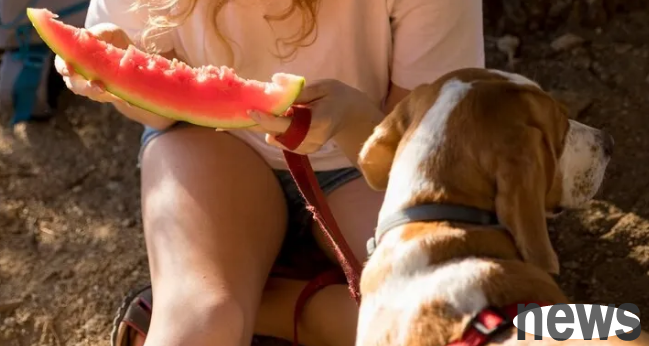Seriously, you may die. Don t give these fruits to your dog.
Therefore, for the health and safety of the dog, it is necessary to ensure that the cores of the pita fruit are removed before feeding them to the dog. If your dog accidentally swallows pita fruit, it should be closely observed for its health. If abnormal symptoms occur, please seek medical attention immediately.

8. Watermelon
Dogs can generally eat watermelon, but it should be noted that it is best to remove watermelon seeds when eating watermelon. At the same time, when feeding seedless watermelon to the dog, you also need to pay attention to the amount of feeding, because seedless watermelon contains a lot of water, and eating too much may cause diarrhea to the dog. In addition, although watermelon is rich in water and vitamins, it also contains a certain amount of sugar, so it is recommended to feed it in moderation and not overdo it to avoid causing problems such as indigestion or obesity. It is best to cut the watermelon into small pieces and feed it to the dog as a snack or reward rather than as a staple food. If the dog experiences discomfort symptoms, such as vomiting, diarrhea, etc., it should be stopped in time and observed. If the symptoms continue or worsen, seek medical attention in time.
9. Lychee
Dogs cannot eat lychee because lychee contains lychee toxin, which may cause harm to the health of dogs. Lychee toxins are mainly found in the seed coat and seeds of lychee, but may also be present in the flesh. Lychee toxin may cause hypoglycemia in dogs, manifesting as symptoms such as weakness, burnout, loss of appetite, and even coma. In some cases, lychee toxin can also cause neurological damage, causing convulsions and other neurological symptoms.
In addition, lychees may also cause indigestion in dogs, manifesting as symptoms such as diarrhea and vomiting. Therefore, for the health and safety of the dog, you should avoid letting the dog eat lychees. If your dog accidentally eats lychees, it should be closely monitored. If abnormal symptoms appear, please seek medical attention immediately.
10. Apple
Dogs can eat apples, but be careful to remove seeds from apple cores and fruit cores, because apple cores and apple seeds contain cyanide, which is toxic to dogs. Cyanide can interfere with the transmission of oxygen in the dog's body, leading to poisoning. So when giving your dog an apple, you must remove the core and seeds.
In addition, apples contain a lot of fructose and cellulose. Eating them in moderation is beneficial for dogs, but eating too much may lead to problems such as indigestion or diarrhea. Therefore, when giving dogs apples, they should be controlled in moderation, and cut into small pieces or mud-like foods are better.
Overall, while dogs can enjoy some fruit, some fruits are taboo for them. When giving your dog fruit, be sure to choose fruits that are safe for them and remove the pits and peels. If you are unsure if a fruit is suitable for your dog to eat, consult your veterinarian’s advice. By eating the right diet, we can ensure that our dogs have a healthy and happy life.



